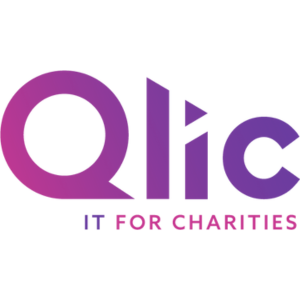Insights
INSIGHTS
All Topics
My Account
The A-Z of lockdown learnings
27 Apr 2021by Chloe Green
We run through the charity digital buzzwords of lockdown, from agile working to Zoom via doomscrolling, livestreaming, and so many more
COVID-19 has birthed a whole new language of buzzwords that tells a tale of the many challenges we’ve overcome together in just a short space of time.
With lockdown measures slowly lifting in the UK, and the slight prospect of hope on the horizon, we take a look back at the A-Zs of digital lockdown and some of the inspiring stories for and by charities that have appeared over the past year or so.
A-Z of charity digital lockdown
Agile working
The term ’agile working’ has been in vogue for some time. But the pandemic has really shifted the conversation into the mainstream, with many charities discovering the unintended benefits of a more agile mindset that isn’t tied to physical location.
#BeMoreDigital
During lockdown, charities have had to quickly get to grips with digitising many aspects of their work. We made our immensely popular #BeMoreDigital Conference fully virtual in 2021.
Building on the success of the Leadership and Fundraising Days, and the Conference, our free virtual #BeMoreDigital Marketing Day features webinar sessions, interactive workshops, and opportunities for charities to hear from experts and network with peers.
Cashless
Is cashless giving here to stay? The transition to a cashless society has certainly picked up speed thanks to the pandemic. Contactless payment limits were increased to £45 as part of the financial service industry’s response to COVID-19, and charities are increasingly embracing cashless payment options, looking to make it easier and safer for donors to give.
Doomscrolling
During COVID-19, many people have been glued to their screens ‘doomscrolling’ or obsessively checking online news feeds and social media.
In the first month of lockdown, Twitter users surged by a huge 24%. Unfortunately, this means that the online rumour mill has been working overtime, with the rise of false information and increasing efforts to tackle false information.
We looked at how charities can become champions for trustworthy information.
Exercise
The cancellation of the London Marathon and thousands of other organised races in 2020 left a huge gap in charities’ fundraising calendars. That was until #twopointsixchallenge came along, encouraging people to take part in sponsored running, walking or other socially distanced physical activities.
The way people still manage to come together at this time is amazing. You’re all brilliant. I’ll be talking about the #twoppointsixchallenge on @BBCBreakfast tomorrow morning if you’re looking for some inspiration! Good luck! @LondonMarathon
— Holly Hamilton (@HollyHNews) April 25, 2020
\uD83C\uDFC3♂️⚽️\uD83E\uDD39♀️\uD83D\uDEB4\uD83C\uDFFB♀️\uD83C\uDFCA\uD83C\uDFFC♀️\uD83E\uDD38\uD83C\uDFFC♂️\uD83C\uDFC3\uD83C\uDFFC♀️\uD83C\uDFBE\uD83E\uDE80\uD83E\uDD41\uD83C\uDFBC\uD83C\uDFD3\uD83C\uDFD1 pic.twitter.com/5N4IjAgJzl
Furlough
With the government’s furlough scheme being extended further into 2021, how can charities make sure their furloughed staff feel valued and reassured, and ready to return to work when the time comes? Our guide offers a few essential pointers.
Gaming
More people than ever have been turning to online games to distract and entertain. As a result, gaming as a tool for social good is seeing a bit of a golden age. Women Win told us how they’ve incorporated gaming into their services, in this Charity Digital podcast.
Also, you can check out our article: How to build a charity gaming campaign.
Haircuts
By about week two of lockdown, everyone was desperate for a haircut. With so many people taking matters (and clippers) into their own hands, the #Haircutforcharity campaign stepped in to turn DIY haircuts into fundraisers.
CHARITIES WE ARE SUPPORTING!
— Haircutforcharity (@CutForCharity) May 6, 2020
Home cuts that are supporting charities during Covid-19. Your participation and generous donation will fund our mission to help various charities whilst bringing communities together with fun! #haircutforcharityhttps://t.co/MpsV0dcEv7 pic.twitter.com/iKiQONmrbS
Isolation
After a full year of restrictions and working from home, plenty of people have felt the psychological effects of social isolation. Self-care has become a hugely important topic for those working remote in the charity sector, and we discussed healthy coping strategies in our Charity Digital Podcast.
Jabs
The rollout of the UK’s vaccination programme is an incredible light at the end of the tunnel.
Unfortunately though, charities are being warned to be on the look out for opportunist cyber criminals, luring people to give away their information via emails posing as vaccination invitations.
Keyworkers
The pandemic put a spotlight on the wellbeing of frontline workers. Mental health support charities include Samaritans and Mind launched an online platform for NHS workers, carers, volunteers and emergency service workers to access online resources, toolkits, advice, text and phone support.
We're teaming up with @samaritans, @giveusashout, @hospiceuk and The Royal Foundation to support @OurFrontlineUK, giving our frontline workers round-the-clock mental health support > https://t.co/HoSpYhH3b8 #OurFrontline pic.twitter.com/yQeFMLWGMu
— Mind (@MindCharity) April 22, 2020
Livestreaming
Livestreaming, where events are broadcast in real-time over the internet, took on a whole new lease of life for charities, with many taking the plunge for the first time. Fundraising events from virtual quizzes to live-streamed gaming tournaments, concerts and gigs took the place of physical fundraising events.
For some tips on livestreaming, check out: How to fundraise with Instagram stories.
Masks
Masks and face coverings are going to be ubiquitous for some time yet, and will be a key component to gradually returning, or partially returning, to office life for many organisations.
As many as eight in ten staff say they might be switching to a ’blended’ office arrangement that combines working from home with some time on premises.
Neighbours
The start of the pandemic brings to mind an image of neighbours on their doorsteps clapping for the NHS and communities rallying together. But the truth is that loneliness hasn’t gone away. As they approach their communication strategies, charities are tackling the important question of how they can balance the need to deliver remote services with empathy and connection.
Online fundraising
From back garden heroes to digital virtual pub quizzes, the pandemic has undoubtedly made digital fundraising mainstream.
In our Charity Digital Podcast with guests from Cats Protection, Action for Children and Platypus Digital, you can find out how charities can improve their approach for 2021 and stay ahead of digital fundraising trends as they evolve.
Also, check out our article: Top fundraising trends of 2021.
Pubs
Virtual pub quizzes have become a staple of lockdown and a great way for charities to drum up support and donations. We’ve even seen breweries and charities team up to put on virtual fundraising quizzes and gigs to support those in the hospitality sector facing hardship.
Quarantine
Research by NPC early on in the pandemic found that vulnerable service users in quarantine or isolated because of Covid-19 are at risk of being cut off from vital charity services they depend on.
Charities and their partners have had to work hard to include the digitally excluded among their services users and explore tools and approaches that help foster wellbeing and connection.
New research reveals charities and public services more vulnerable to COVID-19 crisis than currently understood #STOTS2020 https://t.co/ZTxzpjvtt5 pic.twitter.com/TCSP50Wm4X
— NPC (@NPCthinks) March 24, 2020
Retail
Just like the hospitality sector, retail has faced a huge challenge – but also an opportunity. As charity shops struggle to make profit and safely draw in shoppers, many charities have embraced e-commerce in light of supporters’ new-found enthusiasm for online shopping.
Schools
According to a study by the National Foundation for Educational Research, more than a quarter of pupils had little to no IT access at home during 2020. Charities have been tackling the digital divide in education, helping build confidence and mobilise donated devices where they’re most needed.
Social media
During the pandemic, social media platforms have become critical for charities. New platforms like TikTok saw massive growth in 2020, with the app growing its userbase by over 75%.
Read our guide to the best platforms for social media fundraising for more on the channels, strategies and tactics that can help charities make the most of social media.
Tom Moore
Who could’ve missed legendary veteran Captain Sir Tom Moore, who raised over £12m for NHS Charities Together by walking 100 laps in his garden? This inspirational story showed us the true power of social media to unite people behind a cause.
I’m Captain Tom Moore, war veteran, 99 years of age (soon to be 100) and I’m walking for the NHS to raise money for our heroes.https://t.co/M1dkvoV3kE
— Captain Sir Tom Moore (@captaintommoore) April 10, 2020
Captain Tom Moore passed away on 2 February 2021, after testing positive for COVID-19. He leaves behind a profound and lasting legacy. The 100-year-old was an inspiration to many, particularly those in the charity sector.
Unemployment
Unemployment in the UK is gradually falling across all sectors, after the fastest growth in redundancies on record during 2020. We highlighted innovative tech for good initiates that are supporting people with employment advice, skills assessments and more.
Virtual reality
With social distancing measures in place, charities have had to rapidly pivot to digitising their services. This has been both an enormous challenge and fertile ground for learning and growth, as the stories from charities such as children’s hospice Shooting Star showed.
WFH
These three letters have taken on a new significance, as ’working from home’ has become the default. We’ve learnt a lot about remote working over the last 12 months. Like the importance of setting boundaries, structure and good virtual habits, with these ’digital life hacks.’
We’ve also had a frank discussion about keeping remote staff motivated and on track, in our Charity Digital Podcast ‘Planning, motivation and crochet: how to work from home.’
Xero
Xero was particularly helpful during lockdown, allowing charities to move to e-invoicing giving multiple payment integrations and integrations into their CRM systems. The platform helped charities and other businesses make the seamless switch to working from home.
Another platform supporting the switch to working from home was Sage, which provides accounting and financial solutions to charities of all sizes.
You can find Sage and plenty of other products on Charity Digital Exchange.
YouTube
YouTube videos have become a key tool for charities to cheaply and accessibly reach out and help people from all walks of life during lockdown. Like disability charity Sense and their accessible introduction to British Sign Language, delivered on YouTube via a young service user.
Zoom
And lastly, it wouldn’t be a lockdown A-Z without it. Its sudden rise to fame has made Zoom the tool of choice for many virtual charity services, as well as staff meetings and training.
Read up on a few helpful tips and tricks for charities on Zoom, as well as Zoom features you may not know about.
More on this topic
Recommended Products
07 Mar 2025by Laura Stanley
Marketing trends for charities in 2025
17 Feb 2025by Laura Stanley
Charity Digital Exchange: Grow your charity with AWS
Our Events
Charity Digital Academy
Our courses aim, in just three hours, to enhance soft skills and hard skills, boost your knowledge of finance and artificial intelligence, and supercharge your digital capabilities. Check out some of the incredible options by clicking here.















